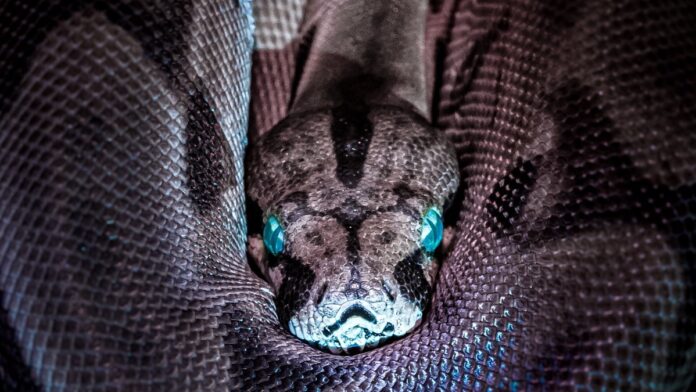What is the most poisonous snake in the world? The Black Mamba in Africa, the Mojave rattlesnake in the Desert Southwest, the Asian cobra in India or Southeast Asia…
Or maybe it’s any of the other 20 species of venomous snakes worldwide. Knowing which one carries such an honour may help you if you are ever trekking through the jungle and encounter such a snake.
But what if you encounter just one fang and not all of them at once? This post will go through the top 10 most poisonous snakes in the world.
READ MORE: The 14 most dangerous animals in the world
Poisonous snakes are known for their venomous bite and an infamous reputation for killing many humans every year. Since the dawn of our species, snakes have been feared by people, perhaps before, as our distant ape-like ancestors ranged the African savannahs.
Poisonous snakes are a marvel of evolution; they possess specialized organs to take down prey, and sometimes their attackers.
Here are the top 10 most venomous snakes in the world
- Inland Taipan
- Eastern Brown Snake
- Coastal Taipan
- Mozambique Spitting Cobra
- Okinawa Habu
- Boomslang
- King Cobra
- Black Mamba
- Saw-scaled Viper
- Barba Amarilla
1. Inland Taipan
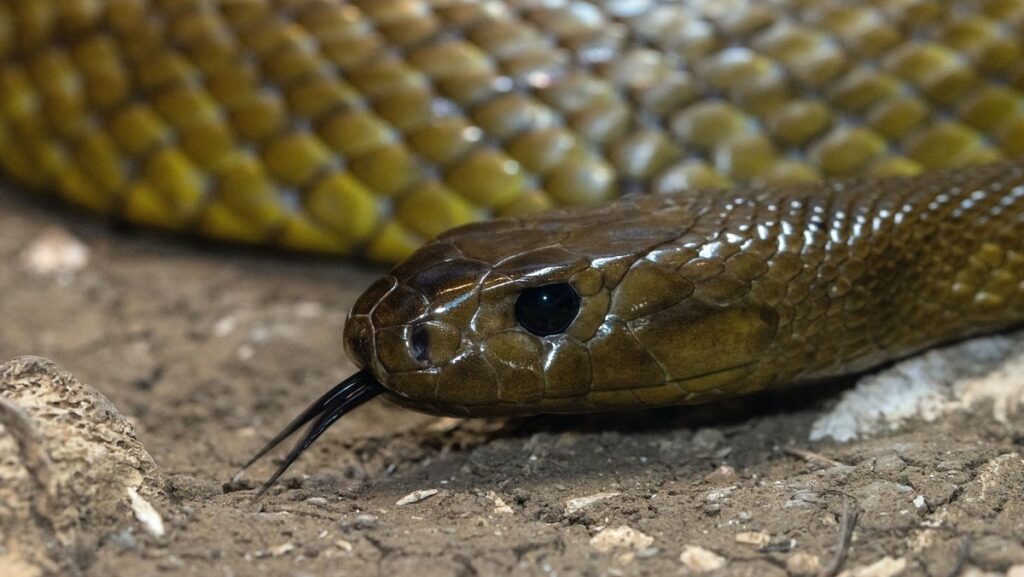
The Inland Taipan is the most venomous snake species in the world. It is considered the third most venomous land snake globally and is noted as one of the most aggressive snake species.
The Inland Taipan has many venom glands and delivers an amount of venom that is sufficient to kill well over 100 men in a single bite.
Inland Taipan is also responsible for many deaths, with an average of two to three fatalities per year (roughly five per cent of all snake-bite deaths in Australia).
2. Eastern Brown Snake
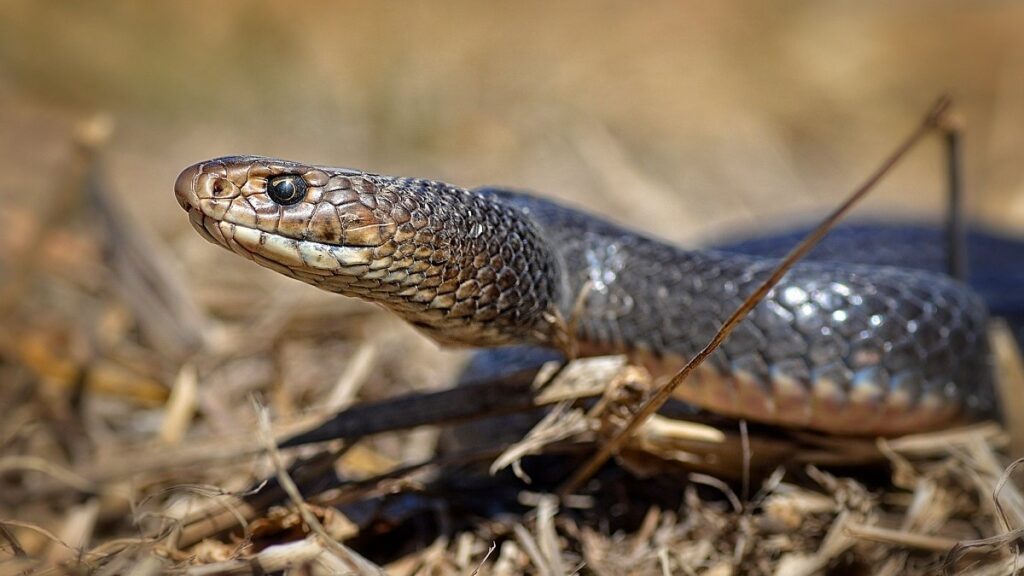
The eastern brown snake is an extremely venomous, agile and lethal snake particularly common in most parts of Australia. It is about 2m long and can be identified by its distinct dark brown colouring. It doesn’t have any distinguished black marks or bands but has a row of dark spots down each side’s back (4-6).
The belly is cream, yellow or pinkish, with grey scales on the ventral surface. Their heads are distinct with a rather pointed snout (rostrum).
3. Coastal Taipan
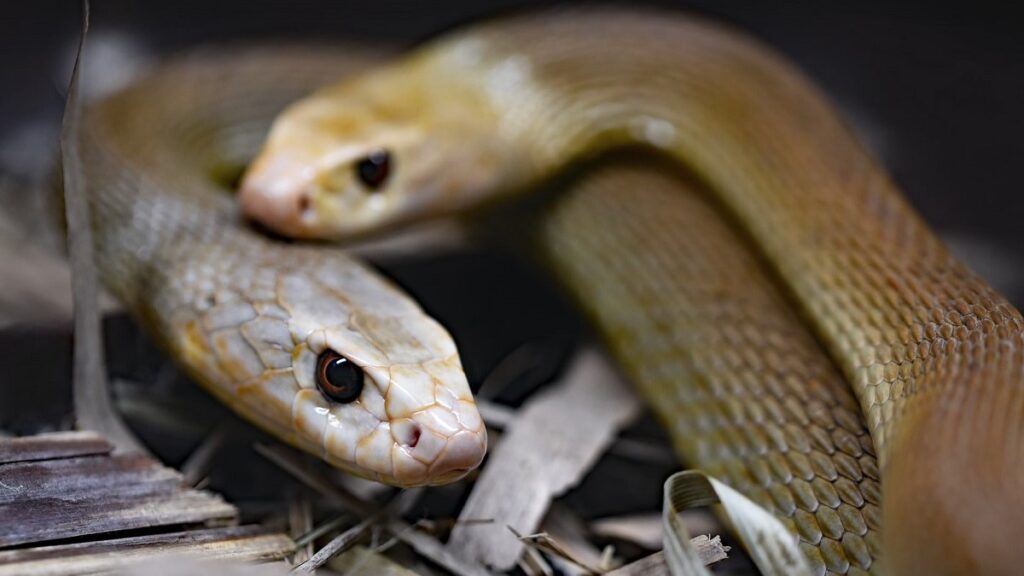
The Coastal Taipan is a venomous snake of the taipan group that lives in swampy areas on the coastal floodplains of Queensland, Australia. It is a medium to large snake that can reach up to 2.5m in length.
The colour varies depending on the amount of black pigment in the snakes colouring. It often shows different hues in one snake. Its appearance can vary from an almost metallic gold through to charcoal grey.
4. Mozambique spitting cobra
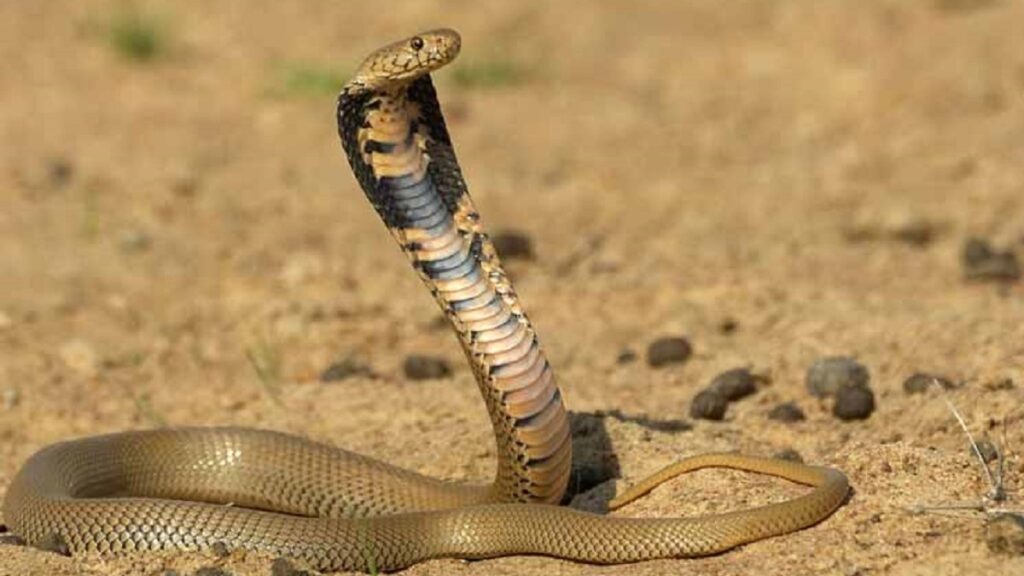
The Mozambique spitting cobra (Naja mossambica), one of the most venomous snake in the world, is native to Central and Southern Africa. This spitting cobra species also has a reputation for being the most dangerous snake in Africa. There seem to be plenty of stories circulating throughout the internet about this particular snake species.
However, whether you will actually get bitten by a Mozambique spitting cobra is another matter entirely; these feared creatures can spit their venom accurately up to two or three metres away.
5. Okinawa habu
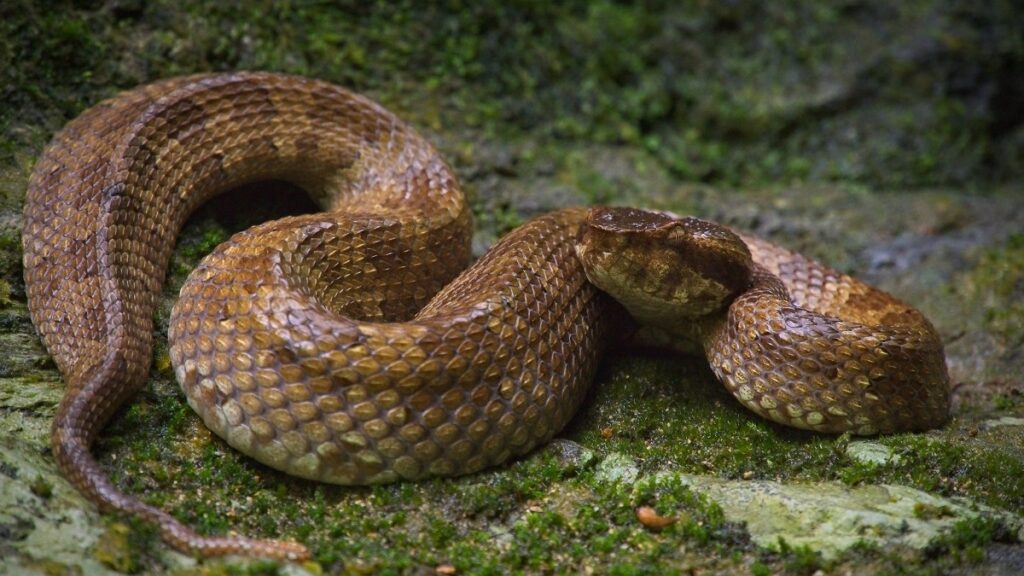
Japan’s most poisonous snakes are not only beautiful but extremely lethal as well. The Okinawan habu (Trimeresurus flavoviridis) is a thin, medium-sized, dangerous snake found only on the Japanese island of Okinawa.
Unlike the spit-and-tumble behaviour of North American rattlesnakes or the lengthy and deliberate strikes of European vipers, habus are likely to strike repeatedly and with great speed.
Its venom can kill, but its ability to deliver the poison is very low, so much so that there are even assurances that it will not harm children. That is why Okinawa residents think of this animal as amusing and cute. The word habushuei means “hissing cute.” This creature has even become an icon for Okinawa itself and is used widely in local products.
6. Boomslang
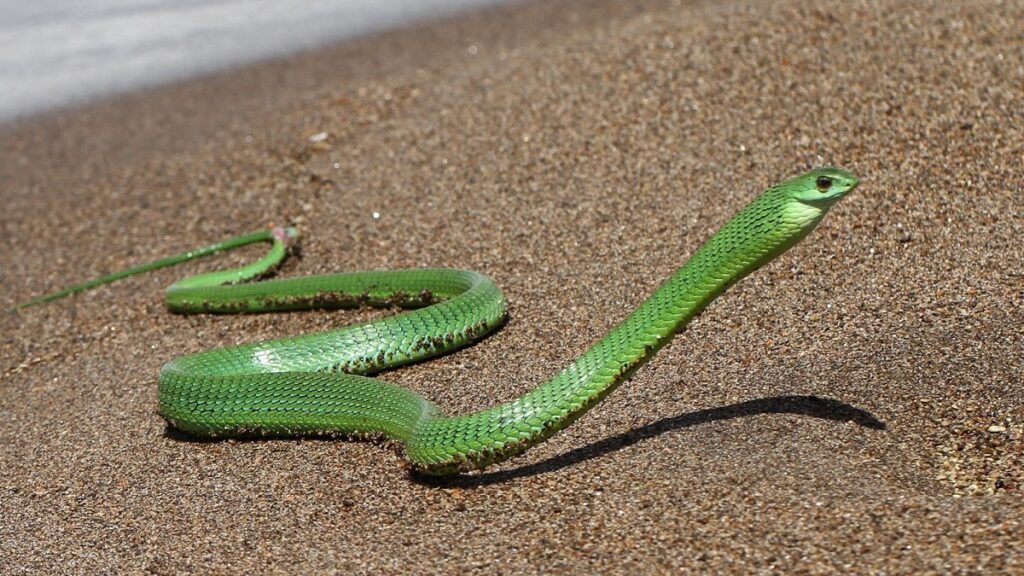
The Boomslang snake (Dispholidus typus) is an Alcate family of cobras with several subspecies. The name boomslang refers to the Afrikaans word for “tree snake” or “snake that booms”, the sound this species makes when it hangs from a tree branch and flaps its throat.
In some areas, it is also known as the Goomslang snake in the English language and Tji-gombé in the Sotho Language because of its distinctive arrowhead markings on its head.
7. King Cobra
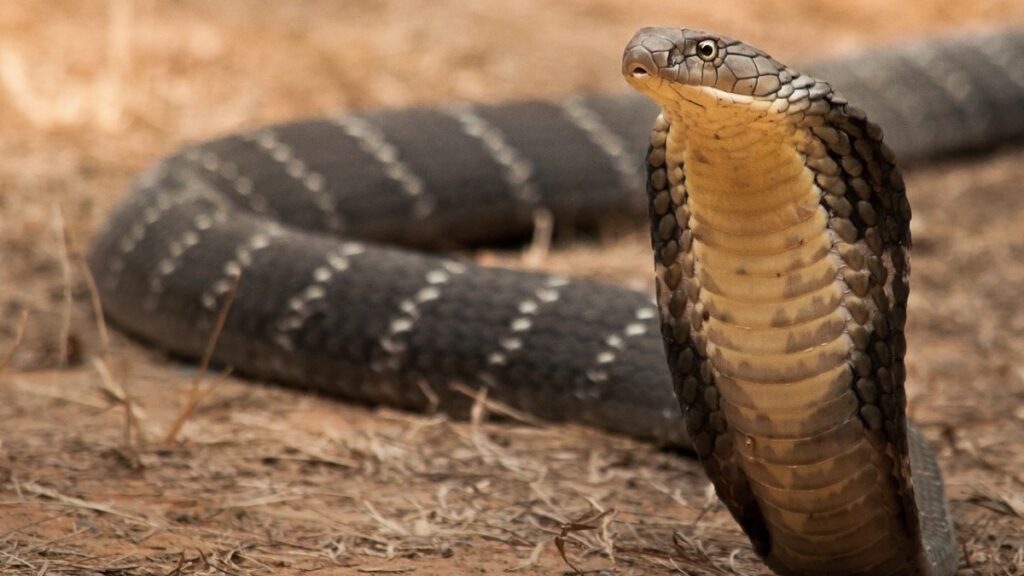
King Cobra is one of the three Elapidae family members (the other two are Black Mamba and Malabar Pit Viper). It is native to India, Nepal, China, Pakistan, and Indonesia. This snake is considered to be the largest venomous snake on Earth. The King cobra snake has the longest fangs of any species of snake on the planet.
Its venom is just as powerful as that of the black mamba, and there have been reported cases of humans being bitten by a King Cobra and dying within 45 minutes.
8. Black Mamba
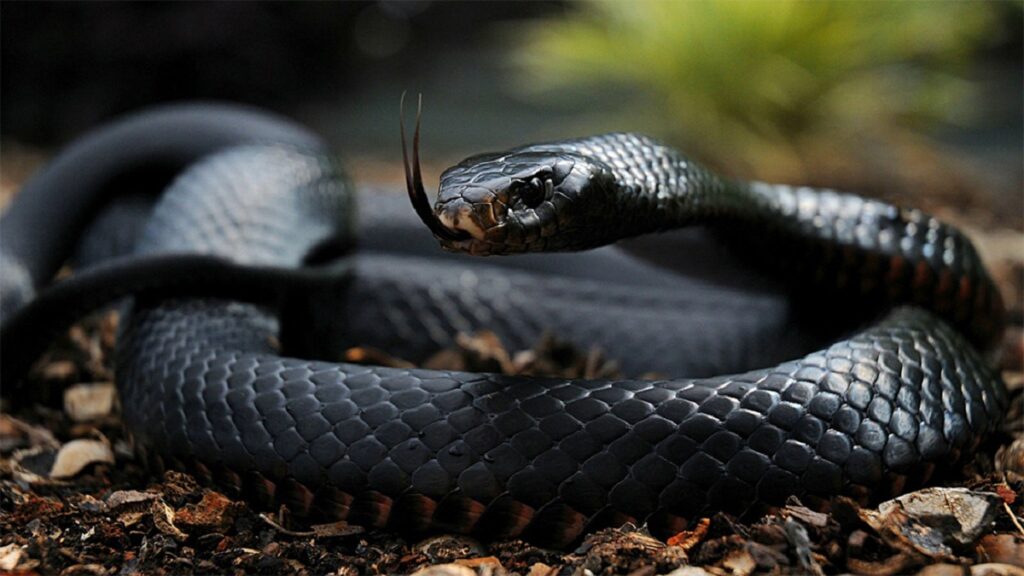
When it comes to Africa’s deadly snakes, there is no doubt about the king of them all: The Black Mamba. This long and slender snake is the fastest striking snake globally – its speed exceeding that of any other land animal – making it quite capable of killing a man in less than two hours.
The Black Mamba is also the longest venomous snake in Africa.
9. Saw-scaled Viper (Echis carinatus)
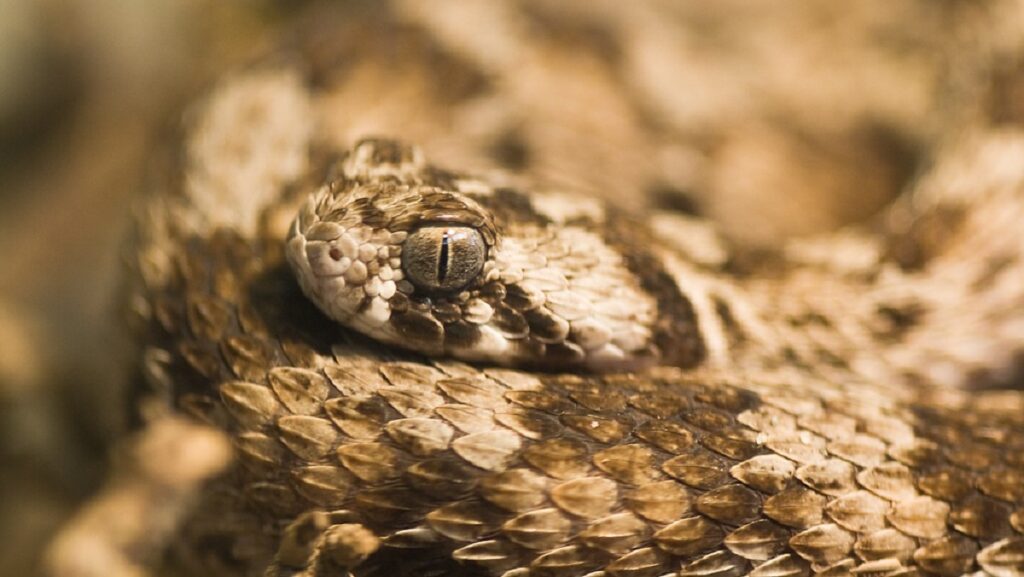
There are over 2,000 species of snakes in the world. While there is no scientific classification for the most dangerous type of snake, the saw-scaled viper (Echis carinatus) can be considered one of Africa’s most dangerous.
The snake is both nocturnal and diurnal, meaning that it hunts at night but is also active during the day.
10. Barba Amarilla (aka Common Lancehead and Fer-de-Lance)
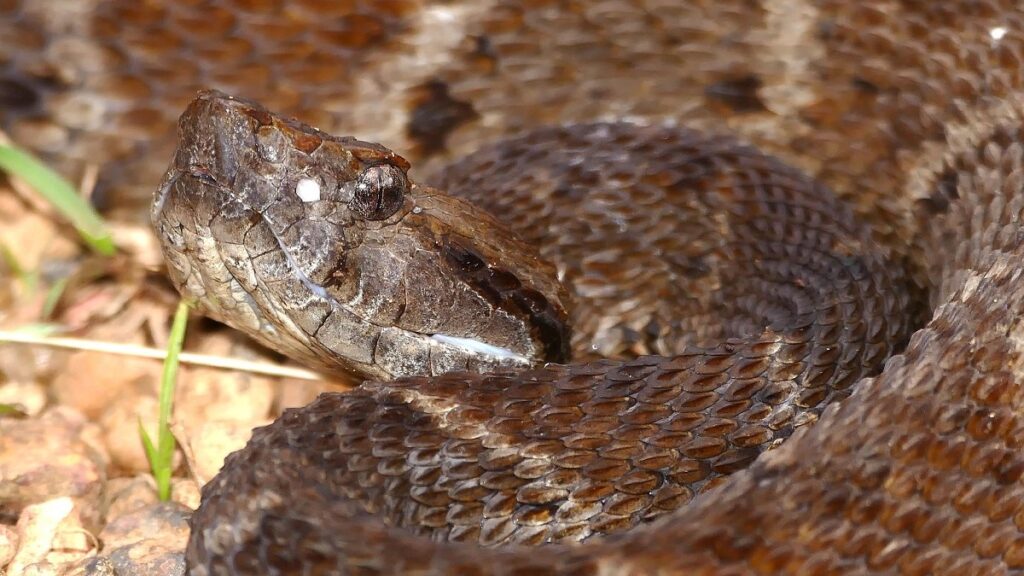
Barba amarilla, or the common lancehead, is a viper species endemic to Hispaniola (the Dominican Republic and Haiti). Also known as fer-de-lance or Barba amarilla, it belongs to the family Viperidae and is the only species in the genus Bothrops.
The [Barba Amarilla] genus consists of two of these [Colubridae] snakes, the Common Lancehead (Bothrops jararaca) and the Fer-de-Lance (Bothrops asper). Both these snakes are highly venomous and have caused a number of human fatalities.
Few animals have the ability to strike fear into our hearts as much as snakes can. While often fascinating, these slithery serpents lurk in nature and are terrifying when provoked – so we advise our fellow wanderlusts to stay safe!

